2018
|
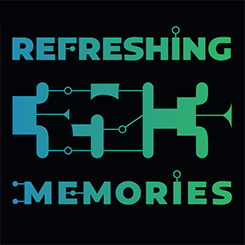 | Theis, Dominik; Lorenz, Anja; Kamm, Jelisaweta: Digital what? Wie man Bildung nicht digitalisieren sollte. Vortrag auf dem 35. Chaos Communication Congress #35c3, Leipzig, 29.12.2018. @misc{Theis201835c3,
title = {Digital what? Wie man Bildung nicht digitalisieren sollte},
author = {Dominik Theis and Anja Lorenz and Jelisaweta Kamm},
url = {https://cfp.verschwoerhaus.de/35c3/talk/ZKJDBE/
http://bit.ly/bfb-35c3},
year = {2018},
date = {2018-12-29},
urldate = {2018-12-29},
address = {Leipzig},
organization = {Bündnis Freie Bildung},
abstract = {Regierungen und politische Entscheidungstragende setzen auf die Forcierung und den Ausbau von Plattformen, um Bildung "endlich" zu digitalisieren. Doch die Umsetzung widerspricht dem Ziel, Menschen dazu zu befähigen, sich im digitalen Raum sicher und mündig zu bewegen.},
howpublished = {Vortrag auf dem 35. Chaos Communication Congress #35c3},
keywords = {Bündnis Freie Bildung, Cloud, learning management system (LMS), leisure, MILLA, politics, school, SchulCloud},
pubstate = {published},
tppubtype = {presentation}
}
Regierungen und politische Entscheidungstragende setzen auf die Forcierung und den Ausbau von Plattformen, um Bildung "endlich" zu digitalisieren. Doch die Umsetzung widerspricht dem Ziel, Menschen dazu zu befähigen, sich im digitalen Raum sicher und mündig zu bewegen. |
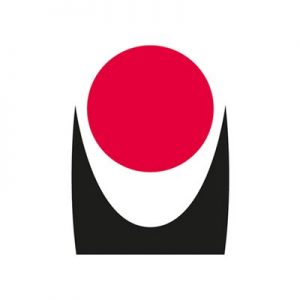 | Lorenz, Anja: Twitter Shadowban. Vortrag im Rahmen der Montagsbildung beim ILD, Lübeck, 17.12.2018. @misc{lorenz18montagsbildung,
title = {Twitter Shadowban},
author = {Anja Lorenz},
url = {http://bit.ly/bchl18-shadowban},
year = {2018},
date = {2018-12-17},
urldate = {2018-12-17},
address = {Lübeck},
school = {Technische Hochschule Lübeck},
howpublished = {Vortrag im Rahmen der Montagsbildung beim ILD},
keywords = {BarCamp Lübeck (#bchl), leisure, montagsbildung, shadowban, twitter},
pubstate = {published},
tppubtype = {presentation}
}
|
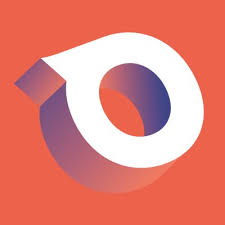 | Lorenz, Anja; Ledwon, Heba; Blöcher, Maria: Make MOOCs Count for Higher Education. Session auf der OEB Global 2018 "Shaping the Future of Learning", Berlin, 07.12.2018. @misc{lorenz2018oeb,
title = {Make MOOCs Count for Higher Education},
author = {Anja Lorenz and Heba Ledwon and Maria Blöcher},
url = {https://oeb.global/},
year = {2018},
date = {2018-12-07},
urldate = {2018-10-09},
address = {Berlin},
abstract = {This Panel brings together three partners presenting different approaches to make the most out of MOOCs for Higher Education through examination and quality assurance measures. Learn about their common project INTEGRAL+ (Integration and Participation of Refugees in the Context of Digital Teaching and Learning Scenarios), funded by the German Federal Ministry for Education and Research and its methods and tools. You are invited to identify more good practices and innovative solutions - and to contribute to an exchange on the European credit system (ECTS) and opportunities to validate non-formal learning with experts in the field. },
howpublished = {Session auf der OEB Global 2018 "Shaping the Future of Learning"},
keywords = {higher education, integration, Kiron, massive open online course (MOOC), pMOOCs, refugees},
pubstate = {published},
tppubtype = {presentation}
}
This Panel brings together three partners presenting different approaches to make the most out of MOOCs for Higher Education through examination and quality assurance measures. Learn about their common project INTEGRAL+ (Integration and Participation of Refugees in the Context of Digital Teaching and Learning Scenarios), funded by the German Federal Ministry for Education and Research and its methods and tools. You are invited to identify more good practices and innovative solutions - and to contribute to an exchange on the European credit system (ECTS) and opportunities to validate non-formal learning with experts in the field. |
 | Lorenz, Anja: Einführung und Fragen zum jbjMOOCmv. Workshop zur Auftaktveranstaltung des Jugendbeteiligungsfonds, Jugendmedienverband MV e.V. Güstrow, 2018. @workshop{lorenz2018jbjmoocmv,
title = {Einführung und Fragen zum jbjMOOCmv},
author = {Anja Lorenz},
url = {http://bit.ly/jbjMOOCmv-KickOff
https://www.jmmv.de/event/2018/11/14/auftaktveranstaltung-digitale-jugendbeteiligung-in-mv/},
year = {2018},
date = {2018-11-15},
urldate = {2018-11-15},
booktitle = {Workshop zur Auftaktveranstaltung des Jugendbeteiligungsfonds},
address = {Güstrow},
organization = {Jugendmedienverband MV e.V.},
howpublished = {Workshop zur Auftaktveranstaltung des Jugendbeteiligungsfonds},
keywords = {collaboration, freelancing, jbjMOOC, jbjMOOCmv, massive open online course (MOOC), participation, tools},
pubstate = {published},
tppubtype = {workshop}
}
|
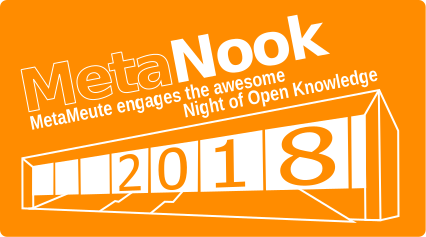 | Lorenz, Anja; Obermüller, Kai: Das BarCamp Lübeck. Lightningtalk auf der MetaNOOK 2018, Lübeck, 09.11.2018. @misc{lorenz2018metanook2,
title = {Das BarCamp Lübeck},
author = {Anja Lorenz and Kai Obermüller},
url = {http://bit.ly/metanook18-bchl
https://metanook.de/2018/talk/lightning-talks-2},
year = {2018},
date = {2018-11-09},
urldate = {2018-11-09},
address = {Lübeck},
abstract = {Das BarCamp Lübeck geht 2018 in die dritte Runde. Dennoch ist noch nicht allen das Format solchen „Unkonferenzen“ bekannt. Hier gibt es keine eingeladenen Vorträge, alle sind Expertinnen und Experten auf einem Bereich. Worum es geht? Das bestimmen die Teilnehmenden am Morgen eines jeden BarCamp-Tags.
Wir stellen in unserem Talk das BarCamp-Format generell vor und berichten aus unseren Erfahrungen „hinter den Kulissen“ der letzten 2,5 Jahre im Orga-Team.},
howpublished = {Lightningtalk auf der MetaNOOK 2018},
keywords = {BarCamp, BarCamp Lübeck (#bchl), leisure, lightning talk},
pubstate = {published},
tppubtype = {presentation}
}
Das BarCamp Lübeck geht 2018 in die dritte Runde. Dennoch ist noch nicht allen das Format solchen „Unkonferenzen“ bekannt. Hier gibt es keine eingeladenen Vorträge, alle sind Expertinnen und Experten auf einem Bereich. Worum es geht? Das bestimmen die Teilnehmenden am Morgen eines jeden BarCamp-Tags.
Wir stellen in unserem Talk das BarCamp-Format generell vor und berichten aus unseren Erfahrungen „hinter den Kulissen“ der letzten 2,5 Jahre im Orga-Team. |
 | Lorenz, Anja: OER: Wie sieht das in Echt aus?. Lightningtalk auf der MetaNOOK 2018, Lübeck, 09.11.2018. @misc{lorenz2018metanook,
title = {OER: Wie sieht das in Echt aus?},
author = {Anja Lorenz},
url = {http://bit.ly/metanook18-OER
https://youtu.be/gGYtr-Xdjmw
https://2018.nook-luebeck.de/2018/talk/lightning-talks-2},
year = {2018},
date = {2018-11-09},
urldate = {2018-11-09},
address = {Lübeck},
abstract = {Eigentlich steckt hinter Open Educational Resources (OER) nicht mehr, als Lernmaterialien, die unter einer freien Lizenz veröffentlicht werden. Diese freien Lizenzen erlauben anderen Lernenden und Lehrenden, dass sie dieses Material weiterverbreiten, aber auch für ihre Zwecke anpassen dürfen. Damit man sich noch besser vorstellen kann, wie OER in der Praxis aussehen können, werden einige der Projekte vorgestellt, die sich um den OER-Award 2016 oder 2017 beworben hatten.},
howpublished = {Lightningtalk auf der MetaNOOK 2018},
keywords = {lightning talk, OER-Award, OERde, open educational ressources (OER)},
pubstate = {published},
tppubtype = {presentation}
}
Eigentlich steckt hinter Open Educational Resources (OER) nicht mehr, als Lernmaterialien, die unter einer freien Lizenz veröffentlicht werden. Diese freien Lizenzen erlauben anderen Lernenden und Lehrenden, dass sie dieses Material weiterverbreiten, aber auch für ihre Zwecke anpassen dürfen. Damit man sich noch besser vorstellen kann, wie OER in der Praxis aussehen können, werden einige der Projekte vorgestellt, die sich um den OER-Award 2016 oder 2017 beworben hatten. |
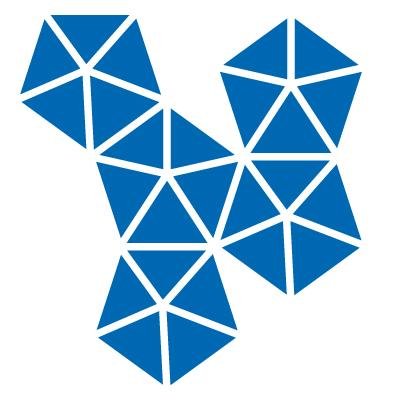 | Lorenz, Anja: Von der digitalen Abbildung zur digitalen Transformation mit professional MOOCs der nächsten Generation. Netzwerk Offene Hochschulen 2018, besucht am: 29.01.2019. @online{Lorenz2018NOH,
title = {Von der digitalen Abbildung zur digitalen Transformation mit professional MOOCs der nächsten Generation},
author = {Anja Lorenz},
url = {https://www.netzwerk-offene-hochschulen.de/noh/noh_blogs/9},
year = {2018},
date = {2018-11-05},
urldate = {2019-01-29},
organization = {Netzwerk Offene Hochschulen},
series = {Gastbeitrag},
abstract = {Mit „pMOOCs 2” geht das Projekt der Technischen Hochschule Lübeck in die zweite Förderphase, um professional Massive Open Online Courses (pMOOCs) als innovatives Format zum durchlässigen berufsbegleitenden Studieren strategisch zu implementieren – so liest man es im Projektantrag. Aber was bedeutet das genau? Und was wollen wir in der zweiten Förderphase erreichen, in der wir uns seit Februar 2018 befinden?},
keywords = {massive open online course (MOOC), pMOOCs},
pubstate = {published},
tppubtype = {online}
}
Mit „pMOOCs 2” geht das Projekt der Technischen Hochschule Lübeck in die zweite Förderphase, um professional Massive Open Online Courses (pMOOCs) als innovatives Format zum durchlässigen berufsbegleitenden Studieren strategisch zu implementieren – so liest man es im Projektantrag. Aber was bedeutet das genau? Und was wollen wir in der zweiten Förderphase erreichen, in der wir uns seit Februar 2018 befinden? |
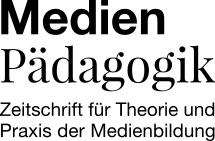 | Lorenz, Anja: Eine offene Bildungsressource (OER) ist konsequent eingesetzt eine Chance für den Hochschulzugang: Ein Praxisbericht. In: MedienPädagogik: Zeitschrift für Theorie Und Praxis Der Medienbildung, Bd. 32 (Oktober), S. 28–40, 2018, ISBN: 1424-3636. @article{lorenz18medienpaed,
title = {Eine offene Bildungsressource (OER) ist konsequent eingesetzt eine Chance für den Hochschulzugang: Ein Praxisbericht},
author = {Anja Lorenz},
url = {http://bit.ly/jfmh17-pmoocs
https://doi.org/10.21240/mpaed/32/2018.10.21.X},
doi = {10.21240/mpaed/32/2018.10.21.X},
isbn = {1424-3636},
year = {2018},
date = {2018-10-23},
journal = {MedienPädagogik: Zeitschrift für Theorie Und Praxis Der Medienbildung},
volume = {32 (Oktober)},
pages = {28–40},
abstract = {Im Bereich der akademischen Weiterbildung werden auch zunehmend offene Online-Kurse (MOOCs) für Hochschulen interessant. An der Technischen Hochschule Lübeck werden im Rahmen des Projekts pMOOCs insb. Berufstätige angesprochen und mögliche Übergänge in die Hochschule untersucht. In diesem Beitrag wird der MOOC «Netzwerksicherheit» in seiner spezifischen Gestaltung als offene Lernressource (OER) vorgestellt und die Konsequenzen der Öffnung anhand von Nutzungszahlen und Evaluationsergebnissen beleuchtet. Insbesondere die Gewinnung von Teilnehmenden, deren Interaktion mit dem Kurs sowie Rückmeldungen zu einer im Anschluss angebotenen Klausur zum Erwerb eines prinzipiell anrechenbaren Hochschulzertifikats zeigen deutliche Unterschiede zu traditionellen (Online-)Studierenden.},
keywords = {massive open online course (MOOC), nwsMOOC, open educational ressources (OER), pMOOCs},
pubstate = {published},
tppubtype = {article}
}
Im Bereich der akademischen Weiterbildung werden auch zunehmend offene Online-Kurse (MOOCs) für Hochschulen interessant. An der Technischen Hochschule Lübeck werden im Rahmen des Projekts pMOOCs insb. Berufstätige angesprochen und mögliche Übergänge in die Hochschule untersucht. In diesem Beitrag wird der MOOC «Netzwerksicherheit» in seiner spezifischen Gestaltung als offene Lernressource (OER) vorgestellt und die Konsequenzen der Öffnung anhand von Nutzungszahlen und Evaluationsergebnissen beleuchtet. Insbesondere die Gewinnung von Teilnehmenden, deren Interaktion mit dem Kurs sowie Rückmeldungen zu einer im Anschluss angebotenen Klausur zum Erwerb eines prinzipiell anrechenbaren Hochschulzertifikats zeigen deutliche Unterschiede zu traditionellen (Online-)Studierenden. |
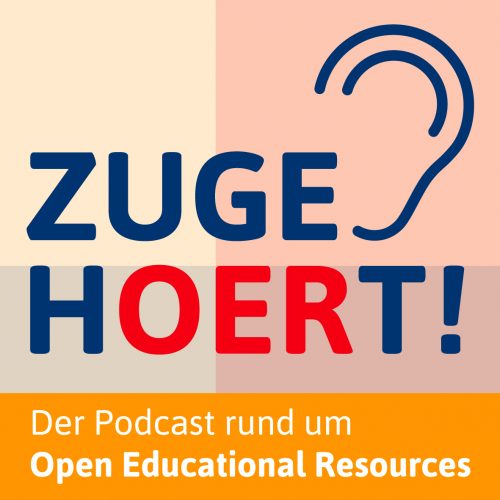 | Muuß-Merholz, Jöran; Lorenz, Anja; Mandausch, Martin; Borski, Sonja: OER056: Qualität ist auch ein Aushandlungsprozess. zugehOERt! – der Podcast rund um Open Educational Ressources (OER), aufgezeichnet am 08.06.2018 auf dem OERCamp, 2018. @misc{lorenz2018oercampb,
title = {OER056: Qualität ist auch ein Aushandlungsprozess},
author = {Jöran Muuß-Merholz and Anja Lorenz and Martin Mandausch and Sonja Borski},
url = {https://open-educational-resources.de/oer056-qualitaet-ist-auch-ein-aushandlungsprozess/},
year = {2018},
date = {2018-09-20},
urldate = {2018-09-20},
address = {Hattingen},
institution = {OERinfo – Informationsstelle OER},
abstract = {Darüber, dass Qualität etwas gutes ist, ist man sich schnell einig. Aber was bedeutet Qualität und Qualitätssicherung in Bezug auf Lehr-Lernmaterialien? Und was hat das alles mit Open zu tun? Ganz schön komplex, wenn man einmal in darüber nachdenkt. Wir tun das mit Anja Lorenz von der FH Lübeck und Martin Mandausch von der Universität Karlsruhe. Dass es dabei auch kontroverse Meinungen gibt, lässt sich in dieser Folge von zugehOERt nachhören.},
howpublished = {zugehOERt! – der Podcast rund um Open Educational Ressources (OER), aufgezeichnet am 08.06.2018 auf dem OERCamp},
keywords = {learning material, leisure, OERCamp, open educational ressources (OER), quality, quality assurance, zugehOERt},
pubstate = {published},
tppubtype = {misc}
}
Darüber, dass Qualität etwas gutes ist, ist man sich schnell einig. Aber was bedeutet Qualität und Qualitätssicherung in Bezug auf Lehr-Lernmaterialien? Und was hat das alles mit Open zu tun? Ganz schön komplex, wenn man einmal in darüber nachdenkt. Wir tun das mit Anja Lorenz von der FH Lübeck und Martin Mandausch von der Universität Karlsruhe. Dass es dabei auch kontroverse Meinungen gibt, lässt sich in dieser Folge von zugehOERt nachhören. |
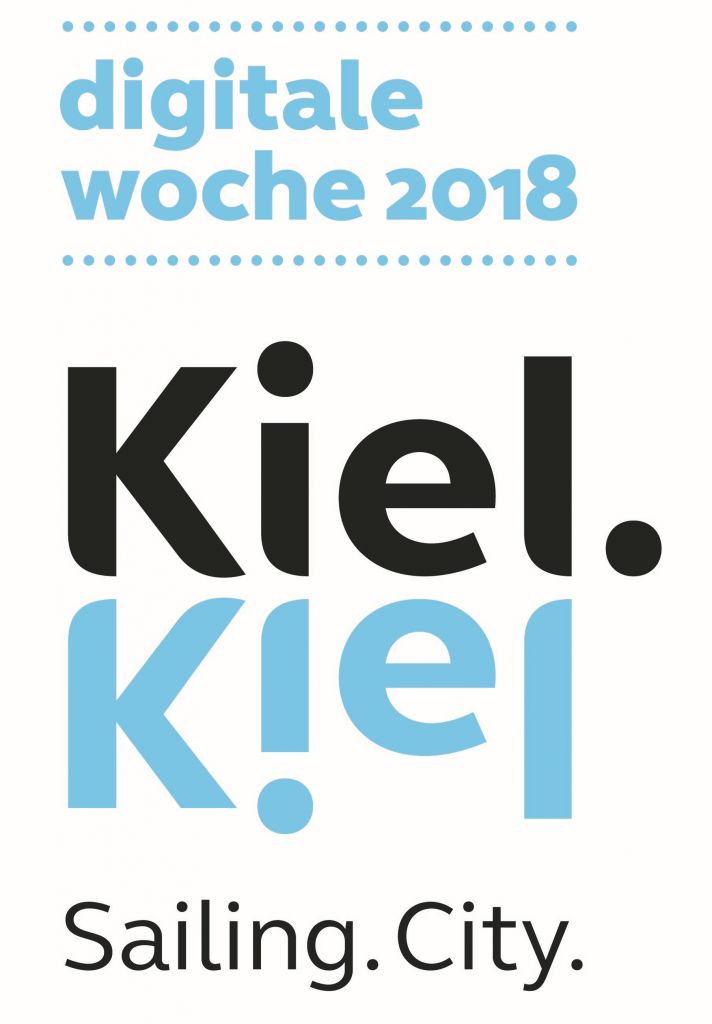 | Lorenz, Anja: Open Educational Ressources (OER): Was ist das und wie sieht das aus?. Beitrag in der Session "Rund um Open Data" auf der Digitalen Woche Kiel 2018, Kiel, 11.09.2018. @misc{lorenz2018diwokiel,
title = {Open Educational Ressources (OER): Was ist das und wie sieht das aus?},
author = {Anja Lorenz},
url = {http://bit.ly/diwokiel-oer
https://digitalewochekiel.de/programm/rund-um-open-data/},
year = {2018},
date = {2018-09-11},
urldate = {2018-09-06},
address = {Kiel},
howpublished = {Beitrag in der Session "Rund um Open Data" auf der Digitalen Woche Kiel 2018},
keywords = {OER-Award, open educational ressources (OER)},
pubstate = {published},
tppubtype = {presentation}
}
|
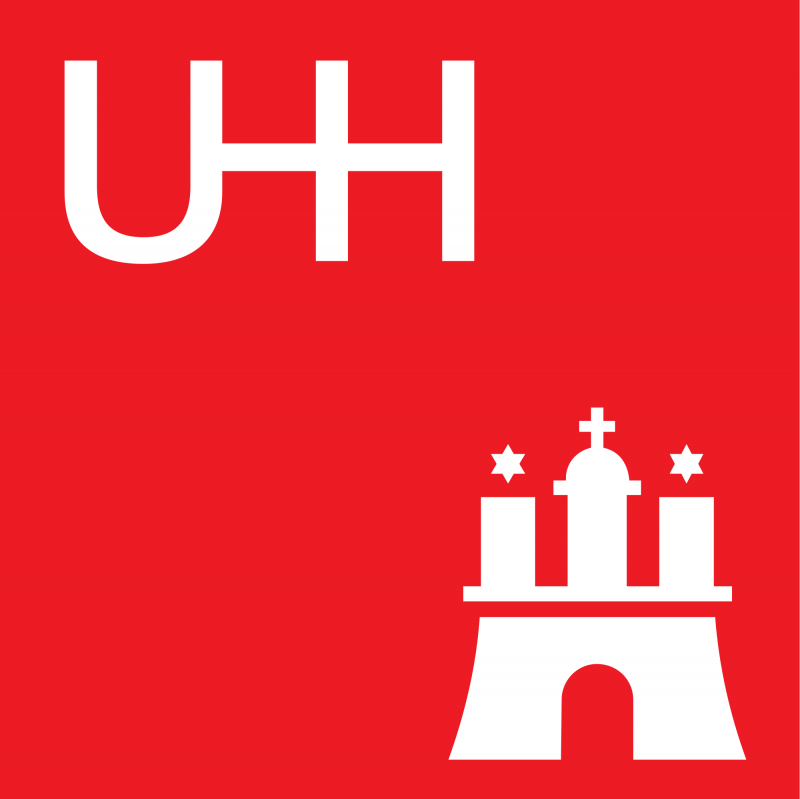 | Lorenz, Anja; Preusse, Sabine: OER-Fachexperten: Open Educational Resources – Macher und Multiplikatoren in der Weiterbildung, OER-MuMiW. In: Synergie: Fachmagazin für Digitalisierung in der Lehre, Sonderband "Projekte der BMBF-Förderung OERinfo 2017/2018", S. 146–155, 2018, ISBN: 978-3-924330-63-7. @article{lorenz2018synergie,
title = {OER-Fachexperten: Open Educational Resources – Macher und Multiplikatoren in der Weiterbildung, OER-MuMiW},
author = {Anja Lorenz and Sabine Preusse},
url = {https://www.synergie.uni-hamburg.de/publikationen/sonderbaende/oer-info-2017-2018.html},
doi = {10.25592/978.3.924330.64.4},
isbn = {978-3-924330-63-7},
year = {2018},
date = {2018-09-01},
journal = {Synergie: Fachmagazin für Digitalisierung in der Lehre, Sonderband "Projekte der BMBF-Förderung OERinfo 2017/2018"},
pages = {146–155},
abstract = {Die Fortbildung zur/zum OER-Fachexpertin bzw. -Fachexperten richtet sich an Akteurinnen und Akteure in der Weiterbildung. In einem fünfstufigen Blended-Learning-Programm werden Kompetenzen rund um freie Lernmaterialien aufgebaut, die bis zur Entwicklung eines eigenen OER-Projekts führen.},
keywords = {BDVT, competences, digitalisation, learning material, massive open online course (MOOC), OER-Fachexperten (OERexp), OERde, open educational ressources (OER)},
pubstate = {published},
tppubtype = {article}
}
Die Fortbildung zur/zum OER-Fachexpertin bzw. -Fachexperten richtet sich an Akteurinnen und Akteure in der Weiterbildung. In einem fünfstufigen Blended-Learning-Programm werden Kompetenzen rund um freie Lernmaterialien aufgebaut, die bis zur Entwicklung eines eigenen OER-Projekts führen. |
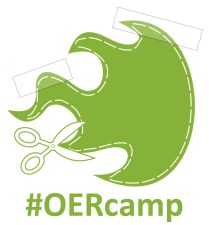 | Lorenz, Anja: MOOC-Making auf oncampus.de (mooin). Hamburg, 2018. @workshop{lorenz18oercampNord,
title = {MOOC-Making auf oncampus.de (mooin)},
author = {Anja Lorenz},
url = {http://bit.ly/OERCamp18-moocs},
year = {2018},
date = {2018-06-15},
urldate = {2018-06-15},
address = {Hamburg},
abstract = {Bei oncampus.de (mooin) kann man kostenlos MOOCs, also kostenlose online-Kurse erstellen und veröffentlichen. Im Workshop erfahrt Ihr, wie das geht.
Bei oncampus.de (mooin) kann man MOOCs, also kostenlose online-Kurse erstellen und veröffentlichen – vorausgesetzt, Ihr macht alles selbst (falls nicht, finden wir sicher auch eine Lösung, die aber ggf. nicht kostenfrei ist). Nach einer kurzen Einführung zu den Möglichkeiten der Plattform und wie man hier einsteigen kann gibt es eine Fragerunde im AMA-Format (Ask me Anything). Wir helfen Euch gern bei der Umsetzung Eurer Angebote (und das supergern unter einer freien Lizenz) und Ihr helft uns, oncampus.de bunter zu machen. Das klingt doch nach einem fairen Deal, oder?},
howpublished = {Workshop auf dem OERCamp Nord in Hamburg},
keywords = {BarCamp, massive open online course (MOOC), moodle, mooin, OERCamp, oncampus, open educational ressources (OER)},
pubstate = {published},
tppubtype = {workshop}
}
Bei oncampus.de (mooin) kann man kostenlos MOOCs, also kostenlose online-Kurse erstellen und veröffentlichen. Im Workshop erfahrt Ihr, wie das geht.
Bei oncampus.de (mooin) kann man MOOCs, also kostenlose online-Kurse erstellen und veröffentlichen – vorausgesetzt, Ihr macht alles selbst (falls nicht, finden wir sicher auch eine Lösung, die aber ggf. nicht kostenfrei ist). Nach einer kurzen Einführung zu den Möglichkeiten der Plattform und wie man hier einsteigen kann gibt es eine Fragerunde im AMA-Format (Ask me Anything). Wir helfen Euch gern bei der Umsetzung Eurer Angebote (und das supergern unter einer freien Lizenz) und Ihr helft uns, oncampus.de bunter zu machen. Das klingt doch nach einem fairen Deal, oder? |
 | Lorenz, Anja: Interaktive Lernmaterialien mit H5P erstellen – und dann?. Hattingen, 2018. @workshop{lorenz18oercampWest,
title = {Interaktive Lernmaterialien mit H5P erstellen – und dann?},
author = {Anja Lorenz},
url = {http://bit.ly/OERCamp18-h5p},
year = {2018},
date = {2018-06-09},
urldate = {2018-06-09},
address = {Hattingen},
abstract = {Die Open-Source-Software H5P macht es ganz leicht, interaktive Elemente und Aufgaben zu gestalten. Das wollen wir tun und uns über Einsatzszenarien unterhalten.
Du kennst H5P nicht? Dann wird es Zeit! Es ist eines der vielen tollen Werkzeuge zur didaktischen Gestaltung von (Blended oder e-) Learning-Szenarien. Schau Dich mal auf https://h5p.org/content-types-and-applications um: das alles kann man damit ohne Programmierkenntnisse erstellen, darunter interaktive Videos mit Quizzes, verschiedene Aufgaben oder andere interaktive Elemente, bspw. Zeitleisten. Da Du im Workshop ganz schnell lernen kannst, wie einfach das ist, werden wir den Hauptteil damit verbringen, über den Einsatz mit und für OER sowie mögliche Einsatzszenarien zu diskutieren – denn hier können wir alle voneinander lernen.},
howpublished = {Workshop auf dem OERCamp West in Hattingen},
keywords = {authoring tools, BarCamp, h5p, OERCamp, open educational ressources (OER)},
pubstate = {published},
tppubtype = {workshop}
}
Die Open-Source-Software H5P macht es ganz leicht, interaktive Elemente und Aufgaben zu gestalten. Das wollen wir tun und uns über Einsatzszenarien unterhalten.
Du kennst H5P nicht? Dann wird es Zeit! Es ist eines der vielen tollen Werkzeuge zur didaktischen Gestaltung von (Blended oder e-) Learning-Szenarien. Schau Dich mal auf https://h5p.org/content-types-and-applications um: das alles kann man damit ohne Programmierkenntnisse erstellen, darunter interaktive Videos mit Quizzes, verschiedene Aufgaben oder andere interaktive Elemente, bspw. Zeitleisten. Da Du im Workshop ganz schnell lernen kannst, wie einfach das ist, werden wir den Hauptteil damit verbringen, über den Einsatz mit und für OER sowie mögliche Einsatzszenarien zu diskutieren – denn hier können wir alle voneinander lernen. |
 | Lorenz, Anja: Interaktive Lernmaterialien mit H5P erstellen – und dann?. Leipzig, 2018. @workshop{lorenz18oercamph5p,
title = {Interaktive Lernmaterialien mit H5P erstellen – und dann?},
author = {Anja Lorenz},
url = {http://bit.ly/OERCamp18-h5p },
year = {2018},
date = {2018-05-26},
urldate = {2018-05-26},
address = {Leipzig},
abstract = {Die Open-Source-Software H5P macht es ganz leicht, interaktive Elemente und Aufgaben zu gestalten. Das wollen wir tun und uns über Einsatzszenarien unterhalten.
Du kennst H5P nicht? Dann wird es Zeit! Es ist eines der vielen tollen Werkzeuge zur didaktischen Gestaltung von (Blended oder e-) Learning-Szenarien. Schau Dich mal auf https://h5p.org/content-types-and-applications um: das alles kann man damit ohne Programmierkenntnisse erstellen, darunter interaktive Videos mit Quizzes, verschiedene Aufgaben oder andere interaktive Elemente, bspw. Zeitleisten. Da Du im Workshop ganz schnell lernen kannst, wie einfach das ist, werden wir den Hauptteil damit verbringen, über den Einsatz mit und für OER sowie mögliche Einsatzszenarien zu diskutieren – denn hier können wir alle voneinander lernen.},
howpublished = {Workshop auf dem OERCamp Ost in Leipzig},
keywords = {authoring tools, BarCamp, h5p, OERCamp, open educational ressources (OER)},
pubstate = {published},
tppubtype = {workshop}
}
Die Open-Source-Software H5P macht es ganz leicht, interaktive Elemente und Aufgaben zu gestalten. Das wollen wir tun und uns über Einsatzszenarien unterhalten.
Du kennst H5P nicht? Dann wird es Zeit! Es ist eines der vielen tollen Werkzeuge zur didaktischen Gestaltung von (Blended oder e-) Learning-Szenarien. Schau Dich mal auf https://h5p.org/content-types-and-applications um: das alles kann man damit ohne Programmierkenntnisse erstellen, darunter interaktive Videos mit Quizzes, verschiedene Aufgaben oder andere interaktive Elemente, bspw. Zeitleisten. Da Du im Workshop ganz schnell lernen kannst, wie einfach das ist, werden wir den Hauptteil damit verbringen, über den Einsatz mit und für OER sowie mögliche Einsatzszenarien zu diskutieren – denn hier können wir alle voneinander lernen. |
 | Lorenz, Anja: Twittern für Newbies. Leipzig, 2018. @workshop{lorenz2018oercampOstTwitter,
title = {Twittern für Newbies},
author = {Anja Lorenz},
url = {http://bit.ly/oercamp18-twitter },
year = {2018},
date = {2018-05-25},
urldate = {2018-05-25},
address = {Leipzig},
howpublished = {Session auf dem OERCamp Ost in Leipzig},
keywords = {BarCamp, leisure, OERCamp, open educational ressources (OER), social media, social networking services, twitter},
pubstate = {published},
tppubtype = {workshop}
}
|
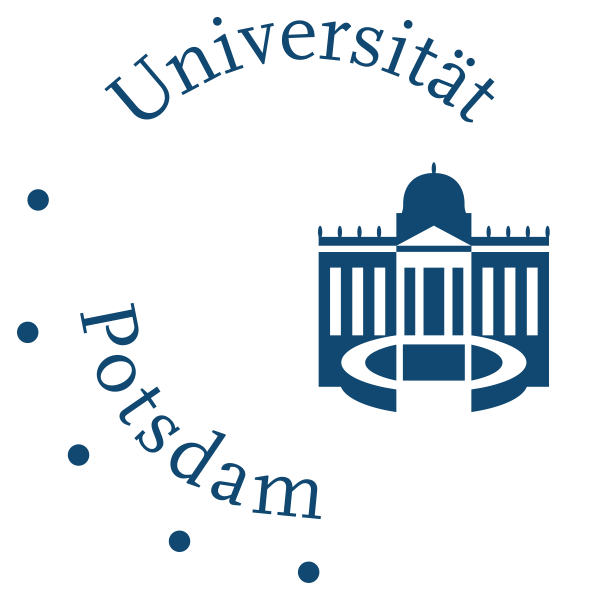 | Lorenz, Anja: H5P - Lehr-Lern-Materialien interaktiv aufbereiten. Workshop, Forum eLearning Universität Potsdam Potsdam, 2018. @workshop{lorenz2018potsdam,
title = {H5P - Lehr-Lern-Materialien interaktiv aufbereiten},
author = {Anja Lorenz},
url = {http://bit.ly/forumelearning-h5p
https://mediaup.uni-potsdam.de/Play/8780
https://www.uni-potsdam.de/zim/nachrichten-veranstaltungen/veranstaltungen/detail/event/show/2018-05-09-forum-elearning-lehr-lern-materialien-interaktiv-aufbereiten-mit-h5p.html},
year = {2018},
date = {2018-05-09},
urldate = {2018-05-09},
booktitle = {Workshop},
address = {Potsdam},
institution = {Universität Potsdam},
organization = {Universität Potsdam},
series = {Forum eLearning},
abstract = {Multimedial und interaktiv aufbereitete Inhalte können zur Unterstützung verschiedener Lernaktivitäten und -phasen eingesetzt werden: von der eigenständigen Wissensaneignung in Selbstlernphasen bis hin zur Überprüfung von Lernfortschritten in Selbst-Tests. Sie können nicht nur der Inhaltsvermittlung dienen, sondern beispielsweise der Motivierung der Lernenden oder auch der Förderung von Verstehens- und Behaltensprozessen. H5P ist eine freie und quelloffene Software zum Erstellen von interaktiven Lehr-Lern-Materialien für das Web. Derzeit bietet H5P mehr als 30 verschiedene Content Typen wie z.B. Lehrvideos, interaktive Präsentationen, Karteikarten, Hot Spots und unterschiedlichste Wissensabfragen an, die größtenteils schnell und unkompliziert auf der Webseite von H5P oder direkt in Moodle erstellt, verändert und geteilt werden können. Im Rahmen des Forum eLearning werden das Tool sowie seine Potenziale und Praxisbeispiele ausführlich vorgestellt. Exemplarisch wird in einer praktischen Anwendung in die Nutzung von H5P eingeführt und interessierte Teilnehmende haben die Möglichkeit vor Ort ein eigenes interaktives Element zu erstellen.
Im Anschluss besteht die Möglichkeit, Ihre Ideen und Medienprojekte mit Ihren E-Learning-Berater*innen der eigenen Hochschule zu besprechen und eine weitere Zusammenarbeit zu vereinbaren. Eigenes Material (Bilder, Videos, Folien, Audio etc.) kann mitgebracht werden. Benötigen Sie ein internetfähiges Gerät (Computer, Tablet) an dem Sie während des Forums mitmachen und ausprobieren möchten, setzen Sie sich bitte mit uns in Verbindung.
Themen des Forums: - H5P im Überblick – Grundprinzipien und Potenziale des Werkzeugs - Anregungen und erste Schritte zur Konzeption eines eigenen interaktiven Lehr-Lern-Materials - Erprobung ausgewählter Content Typen - Hinweise zu Urheberrecht und Datenschutz
Die Referentin: Anja Lorenz, FH Lübeck Anja Lorenz ist Queen of MOOC Maker am Institut für Lerndienstleistungen an der Fachhochschule Lübeck. Ihre wissenschaftlichen Schwerpunkte liegen in den Bereichen E-Learning, Social Media und Open Education. Seit 2013 entwickelt und erforscht sie MOOCs in unterschiedlichen Formaten und engagiert sich für OER und Open Access.},
howpublished = {Workshop im Rahmen des Forum eLearning am 9.5.2018 an der Uni Potsdam},
keywords = {authoring tools, freelancing, h5p, open educational ressources (OER)},
pubstate = {published},
tppubtype = {workshop}
}
Multimedial und interaktiv aufbereitete Inhalte können zur Unterstützung verschiedener Lernaktivitäten und -phasen eingesetzt werden: von der eigenständigen Wissensaneignung in Selbstlernphasen bis hin zur Überprüfung von Lernfortschritten in Selbst-Tests. Sie können nicht nur der Inhaltsvermittlung dienen, sondern beispielsweise der Motivierung der Lernenden oder auch der Förderung von Verstehens- und Behaltensprozessen. H5P ist eine freie und quelloffene Software zum Erstellen von interaktiven Lehr-Lern-Materialien für das Web. Derzeit bietet H5P mehr als 30 verschiedene Content Typen wie z.B. Lehrvideos, interaktive Präsentationen, Karteikarten, Hot Spots und unterschiedlichste Wissensabfragen an, die größtenteils schnell und unkompliziert auf der Webseite von H5P oder direkt in Moodle erstellt, verändert und geteilt werden können. Im Rahmen des Forum eLearning werden das Tool sowie seine Potenziale und Praxisbeispiele ausführlich vorgestellt. Exemplarisch wird in einer praktischen Anwendung in die Nutzung von H5P eingeführt und interessierte Teilnehmende haben die Möglichkeit vor Ort ein eigenes interaktives Element zu erstellen.
Im Anschluss besteht die Möglichkeit, Ihre Ideen und Medienprojekte mit Ihren E-Learning-Berater*innen der eigenen Hochschule zu besprechen und eine weitere Zusammenarbeit zu vereinbaren. Eigenes Material (Bilder, Videos, Folien, Audio etc.) kann mitgebracht werden. Benötigen Sie ein internetfähiges Gerät (Computer, Tablet) an dem Sie während des Forums mitmachen und ausprobieren möchten, setzen Sie sich bitte mit uns in Verbindung.
Themen des Forums: - H5P im Überblick – Grundprinzipien und Potenziale des Werkzeugs - Anregungen und erste Schritte zur Konzeption eines eigenen interaktiven Lehr-Lern-Materials - Erprobung ausgewählter Content Typen - Hinweise zu Urheberrecht und Datenschutz
Die Referentin: Anja Lorenz, FH Lübeck Anja Lorenz ist Queen of MOOC Maker am Institut für Lerndienstleistungen an der Fachhochschule Lübeck. Ihre wissenschaftlichen Schwerpunkte liegen in den Bereichen E-Learning, Social Media und Open Education. Seit 2013 entwickelt und erforscht sie MOOCs in unterschiedlichen Formaten und engagiert sich für OER und Open Access. |
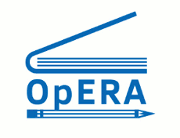 | Lorenz, Anja: Ein eigenes OER als Prüfungsleistung: Ergebnisse aus dem Weiterbildungsprogramm der OER-Fachexperten. Vortrag auf der Informations- und Netzwerktagung "University goes OER - Offene Bildungsmaterialien an Hochschulen und in der akademischen Weiterbildung" im Rahmen des Projekts OpERA, Ulm, 03.05.2018. @misc{lorenz2018opera,
title = {Ein eigenes OER als Prüfungsleistung: Ergebnisse aus dem Weiterbildungsprogramm der OER-Fachexperten},
author = {Anja Lorenz},
url = {http://bit.ly/oerulm-oerexp
https://www.uni-ulm.de/einrichtungen/saps/projekte/opera/netzwerkveranstaltung-2018/},
year = {2018},
date = {2018-05-03},
urldate = {2018-04-11},
address = {Ulm},
school = {Universität Ulm},
abstract = {Nach zwei Workshops und zwei Online-Veranstaltungen nehmen einige Teilnehmerinnen und Teilnehmer nun noch die letzte Stufe in unserer Fortbildung zum/zur OER-Fachexpert*in: eine mündliche Prüfung zu einem selbst erstellten OER. Die Prüfungskommission besteht dabei immer aus mindestens einer Person aus unserem Projektteam sowie einem externen Prüfer, der bereits eine weitreichende Expertise im Themenfeld OER aufweisen kann.
So bekommen wir in diesen Tagen eine immense Vielfalt freier Lernmaterialien der Teilnehmenden zu Gesicht: Neben Arbeitsblättern und Checklisten sind auch Videos und ganze Online-Kurse entstanden. Einen guten Einblick dazu kann man im Forum der 2. Online-Phase erhalten, in denen die Teilnehmenden ihr OER und das dahinterliegende Konzept vorstellen.
Nach einer erfolgreich bestandenen Prüfung nehmen wir die frisch gebackenen OER-Fachexpertinnen und -Fachexperten in unsere „Hall of Fame“ auf, die sich in den nächsten Tagen sicher noch weiter füllen wird.},
howpublished = {Vortrag auf der Informations- und Netzwerktagung "University goes OER - Offene Bildungsmaterialien an Hochschulen und in der akademischen Weiterbildung" im Rahmen des Projekts OpERA},
keywords = {eAssessment, massive open online course (MOOC), mooin, OER-Fachexperten (OERexp), OERde, open educational ressources (OER)},
pubstate = {published},
tppubtype = {presentation}
}
Nach zwei Workshops und zwei Online-Veranstaltungen nehmen einige Teilnehmerinnen und Teilnehmer nun noch die letzte Stufe in unserer Fortbildung zum/zur OER-Fachexpert*in: eine mündliche Prüfung zu einem selbst erstellten OER. Die Prüfungskommission besteht dabei immer aus mindestens einer Person aus unserem Projektteam sowie einem externen Prüfer, der bereits eine weitreichende Expertise im Themenfeld OER aufweisen kann.
So bekommen wir in diesen Tagen eine immense Vielfalt freier Lernmaterialien der Teilnehmenden zu Gesicht: Neben Arbeitsblättern und Checklisten sind auch Videos und ganze Online-Kurse entstanden. Einen guten Einblick dazu kann man im Forum der 2. Online-Phase erhalten, in denen die Teilnehmenden ihr OER und das dahinterliegende Konzept vorstellen.
Nach einer erfolgreich bestandenen Prüfung nehmen wir die frisch gebackenen OER-Fachexpertinnen und -Fachexperten in unsere „Hall of Fame“ auf, die sich in den nächsten Tagen sicher noch weiter füllen wird. |
 | Lorenz, Anja: External MOOCs on mooin: Experiences on opening up an institutional MOOC platform. Beitrag auf der Open Education Global Conference (OER Global), Delft, 26.04.2018. @misc{lorenz18oeglobal2,
title = {External MOOCs on mooin: Experiences on opening up an institutional MOOC platform},
author = {Anja Lorenz},
url = {http://bit.ly/oeglobal18moocmaker
http://sched.co/Dpbv},
year = {2018},
date = {2018-04-26},
urldate = {2018-03-22},
address = {Delft},
abstract = {The MOOC platform mooin is run by the University of Applied Sciences since 2015 to host self-produced MOOCs. In summer 2016, it was also opened up for external persons or institutions searching a platform to host their own MOOCs. What began with personal requests only has established in a fixed process, supported by an own “mooin Maker MOOC” as a tutorial for external MOOC makers. Until today and still in addition to self-produced MOOCs, more that 20 external MOOCs are published on mooin.
The presentation introduces the process from an exclusively self-used MOOC platform to one that is also open for third-party MOOC makers. In addition, the results of an online survey among the external MOOC makers tell more about their motivation and ressources, but also about their experiences with the MOOC platform mooin.},
howpublished = {Beitrag auf der Open Education Global Conference (OER Global)},
keywords = {massive open online course (MOOC), mooin},
pubstate = {published},
tppubtype = {presentation}
}
The MOOC platform mooin is run by the University of Applied Sciences since 2015 to host self-produced MOOCs. In summer 2016, it was also opened up for external persons or institutions searching a platform to host their own MOOCs. What began with personal requests only has established in a fixed process, supported by an own “mooin Maker MOOC” as a tutorial for external MOOC makers. Until today and still in addition to self-produced MOOCs, more that 20 external MOOCs are published on mooin.
The presentation introduces the process from an exclusively self-used MOOC platform to one that is also open for third-party MOOC makers. In addition, the results of an online survey among the external MOOC makers tell more about their motivation and ressources, but also about their experiences with the MOOC platform mooin. |
 | Deimann, Markus; Lorenz, Anja: OER Maker and multipliers in continuing education. Beitrag auf der Open Education Global Conference (OER Global), Delft, 26.04.2018. @misc{lorenz18oegoexp,
title = {OER Maker and multipliers in continuing education},
author = {Markus Deimann and Anja Lorenz},
url = {http://bit.ly/oeglobal18oerexp
http://sched.co/Dpc8},
year = {2018},
date = {2018-04-26},
urldate = {2018-03-22},
address = {Delft},
abstract = {For a long time, continuing education has been dominated by a regime of intellectual property. Most learning materials have been restrictively licenced as they were seen as the (social) capital for trainers, coaches and other adult educators.
This situation led to a strong barrier for the adoption of Open Educational Resources (OER) in adult education contexts. Even though, OER offer immense potential for continuing education and even for self-employed trainers. Therefore, it is the main target of the project “OER Content-Expert” to explain basic principles and advantages of OER for this specific audience.
Funded by the German Ministry of Education and Research, it is part of the program line to develop and implement trainings to sensitize multiplicators for OER in various educational settings. In particular, it is aimed at freelancer who have no or little prior knowledge about OER. Using a blended learning scenario, learners are introduced to the idea and possibilities of OER:
Kick-off: This is for a first introduction to OER in a 3h workshop taking place at one of 20 cities in Germany.
First Online-Phase: A MOOC, lasting 8 weeks with a workload of approximately 3h/week.
Workshop: After learning the basics of OER, participants will work on an individual OER project at a workshop (2 days).
Second Online-Phase: This is intended as a preparation for the examination and for the finalisation of the individual OER-project.
Examination: A presentation of the individual OER-project is given in an online setting. An expert jury will provide feedback. The formal evaluation will, if the participant is successful, result in a certification.
At the moment (October 2017), nearly 400 participants are enrolled in the MOOC and 61 have received a certificate.},
howpublished = {Beitrag auf der Open Education Global Conference (OER Global)},
keywords = {massive open online course (MOOC), mooin, OER-Fachexperten (OERexp), open educational ressources (OER)},
pubstate = {published},
tppubtype = {presentation}
}
For a long time, continuing education has been dominated by a regime of intellectual property. Most learning materials have been restrictively licenced as they were seen as the (social) capital for trainers, coaches and other adult educators.
This situation led to a strong barrier for the adoption of Open Educational Resources (OER) in adult education contexts. Even though, OER offer immense potential for continuing education and even for self-employed trainers. Therefore, it is the main target of the project “OER Content-Expert” to explain basic principles and advantages of OER for this specific audience.
Funded by the German Ministry of Education and Research, it is part of the program line to develop and implement trainings to sensitize multiplicators for OER in various educational settings. In particular, it is aimed at freelancer who have no or little prior knowledge about OER. Using a blended learning scenario, learners are introduced to the idea and possibilities of OER:
Kick-off: This is for a first introduction to OER in a 3h workshop taking place at one of 20 cities in Germany.
First Online-Phase: A MOOC, lasting 8 weeks with a workload of approximately 3h/week.
Workshop: After learning the basics of OER, participants will work on an individual OER project at a workshop (2 days).
Second Online-Phase: This is intended as a preparation for the examination and for the finalisation of the individual OER-project.
Examination: A presentation of the individual OER-project is given in an online setting. An expert jury will provide feedback. The formal evaluation will, if the participant is successful, result in a certification.
At the moment (October 2017), nearly 400 participants are enrolled in the MOOC and 61 have received a certificate. |
 | Muuß-Merholz, Jöran; Fabri, Blanche: 10 years EduCamps, 6 years OERcamps: Transforming Education through Open Conference Formats. Beitrag auf der Open Education Global Conference (OER Global), Delft, 24.04.2018. @misc{mm2018oeglobal,
title = {10 years EduCamps, 6 years OERcamps: Transforming Education through Open Conference Formats},
author = {Jöran Muuß-Merholz and Blanche Fabri},
url = {http://joeran.de/oeglobalbarcamps/
http://sched.co/DpZl},
year = {2018},
date = {2018-04-24},
urldate = {2018-05-07},
address = {Delft},
abstract = {Barcamps represent an unconference format with a common theme but without pre-planned programme. The session schedule is designed collaboratively at the beginning of each (un-)conference day. In Germany there are several barcamps in the field of education. Two of them will be highlighted from the position of members of their organising teams. “Educamps” on digital media in education started in 2008 and have since taken place 21 times. “OERcamps” on Open Educational Resources started in 2012 and have since taken place 9 times.
A recent review of OER-related activities in Germany on behalf of UNESCO (Orr, Neumann, Muuß-Merholz 2017, 8) found: “Since OER activities are mostly driven bottom-up, there has been a need for sharing questions, experiences and materials between players, who have been isolated in their own institutions. These players found opportunities for sharing in cross-sector events and communities. Especially the barcamp/unconference format turned out to fit tremendously well developing a strong German OER community. Indeed, Germany so far has seen a remarkably strong cross-sector community with common interest in OER.”
Barcamps open up new and contemporary formats for learning based on openness, sharing, personal meaning, participation and equality. They are the appropriate format of education for a time in which we are depending on not only transferring fixed knowledge but also co-creating new knowledge. Barcamps are about sharing, discussing, negotiating solutions for a world in change. Barcamps are one way of transforming education through open approaches from bottom-up.
Barcamps are not only a real best practice of open pedagogy and open educational practices. They are also the source of collective development and use of open educational materials. The documentation with collaboratively text documents, blogging, podcasts etc. are mostly shared under a CC BY licence. The organisers also provide templates for documentation and planning under CC BY.},
howpublished = {Beitrag auf der Open Education Global Conference (OER Global)},
keywords = {BarCamp, educamp, OERCamp, OERde, OERde16, OERde17, open educational ressources (OER)},
pubstate = {published},
tppubtype = {presentation}
}
Barcamps represent an unconference format with a common theme but without pre-planned programme. The session schedule is designed collaboratively at the beginning of each (un-)conference day. In Germany there are several barcamps in the field of education. Two of them will be highlighted from the position of members of their organising teams. “Educamps” on digital media in education started in 2008 and have since taken place 21 times. “OERcamps” on Open Educational Resources started in 2012 and have since taken place 9 times.
A recent review of OER-related activities in Germany on behalf of UNESCO (Orr, Neumann, Muuß-Merholz 2017, 8) found: “Since OER activities are mostly driven bottom-up, there has been a need for sharing questions, experiences and materials between players, who have been isolated in their own institutions. These players found opportunities for sharing in cross-sector events and communities. Especially the barcamp/unconference format turned out to fit tremendously well developing a strong German OER community. Indeed, Germany so far has seen a remarkably strong cross-sector community with common interest in OER.”
Barcamps open up new and contemporary formats for learning based on openness, sharing, personal meaning, participation and equality. They are the appropriate format of education for a time in which we are depending on not only transferring fixed knowledge but also co-creating new knowledge. Barcamps are about sharing, discussing, negotiating solutions for a world in change. Barcamps are one way of transforming education through open approaches from bottom-up.
Barcamps are not only a real best practice of open pedagogy and open educational practices. They are also the source of collective development and use of open educational materials. The documentation with collaboratively text documents, blogging, podcasts etc. are mostly shared under a CC BY licence. The organisers also provide templates for documentation and planning under CC BY. |
 | Knoth, Sebastian; Lorenz, Anja; Rampelt, Florian: Make MOOCs count for higher education: Approaches to awarding ECTS Credits for learning in open online courses. Beitrag auf der Open Education Global Conference (OER Global), Delft, 24.04.2018. @misc{lorenz18oeglobal4,
title = {Make MOOCs count for higher education: Approaches to awarding ECTS Credits for learning in open online courses},
author = {Sebastian Knoth and Anja Lorenz and Florian Rampelt},
url = {http://bit.ly/oeglobal18integral
http://sched.co/DpZc},
year = {2018},
date = {2018-04-24},
urldate = {2018-03-22},
address = {Delft},
abstract = {MOOCs provided by Higher Education Institutions (HEIs) have the potential to open up education to a wider audience. By implementing appropriate quality assurance measures, they could also provide a first creditable step into the formal higher education system. Exploring the potential of credentialization and recognition of MOOCs was a major pillar of the INTEGRAL²-project (“Integration and Participation of Refugees in the Context of Digital Teaching and Learning Scenarios”) of Lübeck University of Applied Sciences, RWTH Aachen University and Kiron Open Higher Education. The partners explored possible combinations of the openness of MOOC-based learning with quality assurance and examination approaches that abide to standards of the European Higher Education Area.
Regarding quality assurance measures, Kiron has repurposed and adapted tools developed through the Bologna Process in order to explore new pathways to the recognition of prior learning. A core element are MOOC booklets (MOOklets) that connect and display all quality information needed for recognition in a comparable, standardized way.
As the university partners identified the existing exams within MOOC’s to be the most critical part in order to award legitimate credit points, the partners followed two different approaches: Module-based competence assessment (on- and offline) and MOOC-based examinations (offline). Lübeck University of Applied Sciences tested a procedure to verify learning outcomes by written and oral examinations whilst RWTH Aachen University targeted a more traditional examination approach with written and e-exams that can be taken simultaneously at different offline locations. In the follow-up project INTEGRAL+, the partners will focus on establishing a German examination network for e-assessment of MOOC-based learning.
Both efforts in the field of a firm examinations and the endorsement of recognition processes of all existing and future university partners within the Kiron network can lead to simplified admission process and can be key enablers of a successful integration via education.},
howpublished = {Beitrag auf der Open Education Global Conference (OER Global)},
keywords = {higher education, integration, Kiron, massive open online course (MOOC), mooin, refugees},
pubstate = {published},
tppubtype = {presentation}
}
MOOCs provided by Higher Education Institutions (HEIs) have the potential to open up education to a wider audience. By implementing appropriate quality assurance measures, they could also provide a first creditable step into the formal higher education system. Exploring the potential of credentialization and recognition of MOOCs was a major pillar of the INTEGRAL²-project (“Integration and Participation of Refugees in the Context of Digital Teaching and Learning Scenarios”) of Lübeck University of Applied Sciences, RWTH Aachen University and Kiron Open Higher Education. The partners explored possible combinations of the openness of MOOC-based learning with quality assurance and examination approaches that abide to standards of the European Higher Education Area.
Regarding quality assurance measures, Kiron has repurposed and adapted tools developed through the Bologna Process in order to explore new pathways to the recognition of prior learning. A core element are MOOC booklets (MOOklets) that connect and display all quality information needed for recognition in a comparable, standardized way.
As the university partners identified the existing exams within MOOC’s to be the most critical part in order to award legitimate credit points, the partners followed two different approaches: Module-based competence assessment (on- and offline) and MOOC-based examinations (offline). Lübeck University of Applied Sciences tested a procedure to verify learning outcomes by written and oral examinations whilst RWTH Aachen University targeted a more traditional examination approach with written and e-exams that can be taken simultaneously at different offline locations. In the follow-up project INTEGRAL+, the partners will focus on establishing a German examination network for e-assessment of MOOC-based learning.
Both efforts in the field of a firm examinations and the endorsement of recognition processes of all existing and future university partners within the Kiron network can lead to simplified admission process and can be key enablers of a successful integration via education. |
 | Lorenz, Anja; Muuß-Merholz, Jöran: An Award for Open Educational Resources – an innovative approach to defining quality in OER. Beitrag auf der Open Education Global Conference (OER Global), Delft, 24.04.2018. @misc{lorenz18oeglobal3,
title = {An Award for Open Educational Resources – an innovative approach to defining quality in OER},
author = {Anja Lorenz and Jöran Muuß-Merholz},
url = {http://joeran.de/oeglobalawards/
http://sched.co/DpZv},
year = {2018},
date = {2018-04-24},
urldate = {2018-03-22},
address = {Delft},
abstract = {o promote the efforts of practioners in the field OER to a wider public, the German OER-Award has been granted for the first time as part of the OER-Festival in February 2016. Elected by a jury of OER experts, there was not only an OER-Award in several educational field, but also in special domains. The second OER-Awards will have been granted in November 2017 following the collaboratively-designed process to identify deserving nominees and winners.
The presentation describes the short history of the German OER-Awards including changes that has been made for the second edition. Next to best practices also the challenges will be discussed. Finally, we will welcome your feedback to improve the process for the 3rd edition of our OER-Awards.},
howpublished = {Beitrag auf der Open Education Global Conference (OER Global)},
keywords = {OER-Award, OERde, OERde16, OERde17, open educational ressources (OER)},
pubstate = {published},
tppubtype = {presentation}
}
o promote the efforts of practioners in the field OER to a wider public, the German OER-Award has been granted for the first time as part of the OER-Festival in February 2016. Elected by a jury of OER experts, there was not only an OER-Award in several educational field, but also in special domains. The second OER-Awards will have been granted in November 2017 following the collaboratively-designed process to identify deserving nominees and winners.
The presentation describes the short history of the German OER-Awards including changes that has been made for the second edition. Next to best practices also the challenges will be discussed. Finally, we will welcome your feedback to improve the process for the 3rd edition of our OER-Awards. |
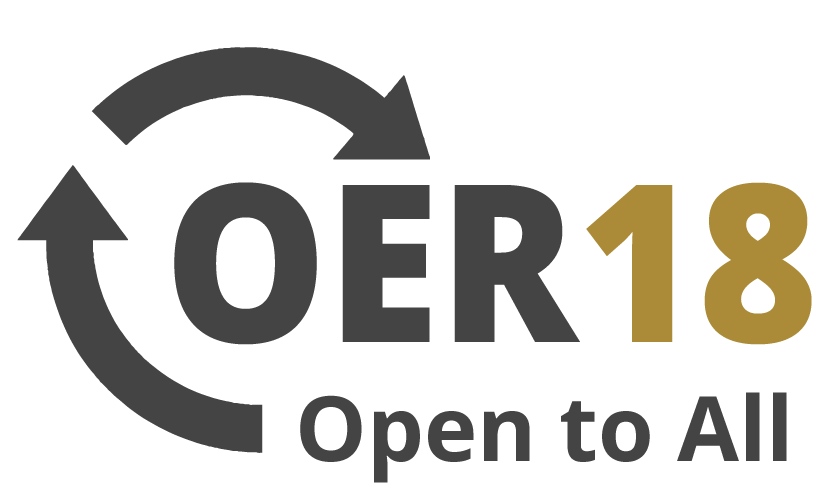 | Muuß-Merholz, Jöran; Fabri, Blanche: Conferences open to all! Mainstreaming open education through unconferences and barcamps. 9th annual conference for Open Education research, practice and policy (OER18), 18–19 April 2018, Bristol, UK, Bristol, 19.04.2018. @misc{mm2018oer18,
title = {Conferences open to all! Mainstreaming open education through unconferences and barcamps},
author = {Jöran Muuß-Merholz and Blanche Fabri},
url = {http://joeran.de/oer18oercamp/
https://oer18.oerconf.org/sessions/conferences-open-to-all-mainstreaming-open-education-through-unconferences-and-barcamps-1873/},
year = {2018},
date = {2018-04-19},
urldate = {2018-05-07},
address = {Bristol},
organization = {Association for Learning Technology (ALT)},
abstract = {Barcamps or open conferences are open education events which are open to all. They represent an unconference format with a common theme but without pre-planned programme. The session schedule is designed collaboratively at the beginning of each (un-)conference day. In Germany there are several barcamps in the field of education. Three of them will be highlighted. “Educamps” on digital media in education started in 2008 and have since taken place 21 times. “OERcamps” on Open Educational Resources started in 2012 and have since taken place 9 times. “InklusionsCamp” on inclusive education which has taken place for the first time in 2015.
A recent review of OER-related activities in Germany on behalf of UNESCO (Orr, Neumann, Muuß-Merholz 2017, 8) found: “Since OER activities are mostly driven bottom-up, there has been a need for sharing questions, experiences and materials between players, who have been isolated in their own institutions. These players found opportunities for sharing in cross-sector events and communities. Especially the barcamp/unconference format turned out to fit tremendously well developing a strong German OER community. Indeed, Germany so far has seen a remarkably strong cross-sector community with common interest in OER.”
Barcamps open up new and contemporary formats for learning based on openness, sharing, personal meaning, participation and equality. They are the appropriate format of education for a time in which we are depending on not only transferring fixed knowledge but also co-creating new knowledge. Barcamps are about sharing, discussing, negotiating solutions for a world in change. Barcamps are one way of transforming education through open approaches from bottom-up.
Barcamps are not only a real best practice of open pedagogy and open educational practices. They are also the source of collective development and use of open educational materials (Bernhardt & Kirchner 2009). The documentation with collaborative text documents, blogging, podcasts etc. are mostly shared under a CC BY licence. The organisers also provide templates for documentation and planning under CC BY.
Barcamps provide a radical “Open to all” approach by lowering the barriers by removing participation fees and any formal requirements, fostering cross sectoral collaboration, encouraging volunteering and peer to peer support for participants, facilitate ways of participation via digital media. Barcamps aim to be truely inclusive events.
In this presentation we will give an overview on these characteristics. We would also like to encourage the participants to discuss how they can bring open conferencing to their home turfs.
References
Bernhardt, T., & Kirchner, M. (2009). Web 2.0 Meets Conference: The EduCamp as. Looking Toward the Future of Technology-Enhanced Education: Ubiquitous Learning and the Digital Native, 192.
Greenhill, K., & Wiebrands, C. (2008). The unconference: a new model for better professional communication.
Wenger, E. (1998). Communities of practice: Learning, meaning, and identity. Cambridge university press.
Orr, D., Neumann, J., & Muuß-Merholz, J. (2017). German OER Practices and Policy — from Bottom-up to Top-down Initiatives. UNESCO Institute for Information Technologies in Education (IITE).},
howpublished = {9th annual conference for Open Education research, practice and policy (OER18), 18–19 April 2018, Bristol, UK},
keywords = {BarCamp, educamp, OERCamp, OERde, OERde16, OERde17, open educational ressources (OER)},
pubstate = {published},
tppubtype = {presentation}
}
Barcamps or open conferences are open education events which are open to all. They represent an unconference format with a common theme but without pre-planned programme. The session schedule is designed collaboratively at the beginning of each (un-)conference day. In Germany there are several barcamps in the field of education. Three of them will be highlighted. “Educamps” on digital media in education started in 2008 and have since taken place 21 times. “OERcamps” on Open Educational Resources started in 2012 and have since taken place 9 times. “InklusionsCamp” on inclusive education which has taken place for the first time in 2015.
A recent review of OER-related activities in Germany on behalf of UNESCO (Orr, Neumann, Muuß-Merholz 2017, 8) found: “Since OER activities are mostly driven bottom-up, there has been a need for sharing questions, experiences and materials between players, who have been isolated in their own institutions. These players found opportunities for sharing in cross-sector events and communities. Especially the barcamp/unconference format turned out to fit tremendously well developing a strong German OER community. Indeed, Germany so far has seen a remarkably strong cross-sector community with common interest in OER.”
Barcamps open up new and contemporary formats for learning based on openness, sharing, personal meaning, participation and equality. They are the appropriate format of education for a time in which we are depending on not only transferring fixed knowledge but also co-creating new knowledge. Barcamps are about sharing, discussing, negotiating solutions for a world in change. Barcamps are one way of transforming education through open approaches from bottom-up.
Barcamps are not only a real best practice of open pedagogy and open educational practices. They are also the source of collective development and use of open educational materials (Bernhardt & Kirchner 2009). The documentation with collaborative text documents, blogging, podcasts etc. are mostly shared under a CC BY licence. The organisers also provide templates for documentation and planning under CC BY.
Barcamps provide a radical “Open to all” approach by lowering the barriers by removing participation fees and any formal requirements, fostering cross sectoral collaboration, encouraging volunteering and peer to peer support for participants, facilitate ways of participation via digital media. Barcamps aim to be truely inclusive events.
In this presentation we will give an overview on these characteristics. We would also like to encourage the participants to discuss how they can bring open conferencing to their home turfs.
References
Bernhardt, T., & Kirchner, M. (2009). Web 2.0 Meets Conference: The EduCamp as. Looking Toward the Future of Technology-Enhanced Education: Ubiquitous Learning and the Digital Native, 192.
Greenhill, K., & Wiebrands, C. (2008). The unconference: a new model for better professional communication.
Wenger, E. (1998). Communities of practice: Learning, meaning, and identity. Cambridge university press.
Orr, D., Neumann, J., & Muuß-Merholz, J. (2017). German OER Practices and Policy — from Bottom-up to Top-down Initiatives. UNESCO Institute for Information Technologies in Education (IITE). |
 | Muuß-Merholz, Jöran; Lorenz, Anja: The OER Awards in Germany. Promoting #Open through awarding best practice. 9th annual conference for Open Education research, practice and policy (OER18), 18–19 April 2018, Bristol, UK, Bristol, 19.04.2018. @misc{lorenz2018oer18,
title = {The OER Awards in Germany. Promoting #Open through awarding best practice},
author = {Jöran Muuß-Merholz and Anja Lorenz},
url = {http://joeran.de/oer18award/
https://oer18.oerconf.org/sessions/the-oer-awards-in-germany-promoting-open-through-awarding-best-practice-1909/},
year = {2018},
date = {2018-04-19},
urldate = {2018-03-22},
address = {Bristol},
organization = {Association for Learning Technology (ALT)},
abstract = {The Ljubljana Action Plan 2017 puts a strong emphasis on “high quality” of OER (UNECO 2017), that is not a trivial issue when it comes to education (Ehlers 2009). The German “OER awards” aim at new ways of discussing and promoting OER.
Though Germany has been a latecomer to the OER scene, there is a strong OER community now (Orr, Neumann, Muuß-Merholz 2017). To promote the idea and the sharing of OER in German-speaking regions, there have been OER awards in early 2016 and in November 2017.
Overview
The OER awards highlight the efforts of OER practitioners in more than 10 categories. Furthermore, there was an audience award in 2016 that was linked to a funding for the best OER idea, that must be realized with the prize money, and special awards by the jury in 2016 and 2017 without submission options.
Criteria
A special focus was set on the elaboration of definitions for requirements and criteria. Contributions must be
- Open as described in the Open Definition (published by Open Knowledge International).
- Educational as in “designed for educational purposes”.
- Resource in the sense of “delimitable and transferable”. This explicitly includes software and concepts.
- German, i.e. in German language or (!) predominantly developed in a German language country.
In 2017 the following criteria were used for assessment:
- temporal relevance (must date from later than early 2016)
- participation and collaboration in the making
- didactic quality, innovative pedagogical settings
- licencing
- range, use, impact
- potential for actual reuse
- quality development and quality assurance
- technical quality
- X-factor (wild card for positive qualities not covered in the criteria mentioned above)
Quality of the content regarded from a subject perspective was NOT among the criteria.
It should be noted that these criteria were developed in an open and collaborative process among a jury of OER experts. All steps of the election processes were organized online as the jury never met before the ceremony. Supported by a moodle course and a set of Google Documents and Formulas, the process was adapted to the several steps and needs of the jury.
Outline of the Session
In our presentation we will give an overview on the idea and the process behind the OER award and show some statistics and figures. A special focus will be set on the community driven work within the “oer academy” in which the process, the criteria and the selection of awardees are discussed openly. Showcasing awarded projects will NOT be part of the presentation. We will instead focus on the question how an award can contribute to promoting the idea and the sharing of OER.
References
Ehlers, U. D. (2009). Understanding quality culture. Quality Assurance in Education, 17(4), 343-363.
Orr, D.; Neumann, J.; Muuß-Merholz, J. (2017). German OER Practices and Policy – from Bottom-up to Top-down Initiatives. http://iite.unesco.org/publications/3214746/
UNESCO (2017). “Ljubljana OER Action Plan 2017.” Adopted by the second World Open Educational Resources (OER) Congress in Ljubljana in September 2017. https://en.unesco.org/sites/default/files/ljubljana_oer_action_plan_2017.pdf},
howpublished = {9th annual conference for Open Education research, practice and policy (OER18), 18–19 April 2018, Bristol, UK},
keywords = {OER-Award, OERde, OERde16, OERde17, open educational ressources (OER)},
pubstate = {published},
tppubtype = {presentation}
}
The Ljubljana Action Plan 2017 puts a strong emphasis on “high quality” of OER (UNECO 2017), that is not a trivial issue when it comes to education (Ehlers 2009). The German “OER awards” aim at new ways of discussing and promoting OER.
Though Germany has been a latecomer to the OER scene, there is a strong OER community now (Orr, Neumann, Muuß-Merholz 2017). To promote the idea and the sharing of OER in German-speaking regions, there have been OER awards in early 2016 and in November 2017.
Overview
The OER awards highlight the efforts of OER practitioners in more than 10 categories. Furthermore, there was an audience award in 2016 that was linked to a funding for the best OER idea, that must be realized with the prize money, and special awards by the jury in 2016 and 2017 without submission options.
Criteria
A special focus was set on the elaboration of definitions for requirements and criteria. Contributions must be
- Open as described in the Open Definition (published by Open Knowledge International).
- Educational as in “designed for educational purposes”.
- Resource in the sense of “delimitable and transferable”. This explicitly includes software and concepts.
- German, i.e. in German language or (!) predominantly developed in a German language country.
In 2017 the following criteria were used for assessment:
- temporal relevance (must date from later than early 2016)
- participation and collaboration in the making
- didactic quality, innovative pedagogical settings
- licencing
- range, use, impact
- potential for actual reuse
- quality development and quality assurance
- technical quality
- X-factor (wild card for positive qualities not covered in the criteria mentioned above)
Quality of the content regarded from a subject perspective was NOT among the criteria.
It should be noted that these criteria were developed in an open and collaborative process among a jury of OER experts. All steps of the election processes were organized online as the jury never met before the ceremony. Supported by a moodle course and a set of Google Documents and Formulas, the process was adapted to the several steps and needs of the jury.
Outline of the Session
In our presentation we will give an overview on the idea and the process behind the OER award and show some statistics and figures. A special focus will be set on the community driven work within the “oer academy” in which the process, the criteria and the selection of awardees are discussed openly. Showcasing awarded projects will NOT be part of the presentation. We will instead focus on the question how an award can contribute to promoting the idea and the sharing of OER.
References
Ehlers, U. D. (2009). Understanding quality culture. Quality Assurance in Education, 17(4), 343-363.
Orr, D.; Neumann, J.; Muuß-Merholz, J. (2017). German OER Practices and Policy – from Bottom-up to Top-down Initiatives. http://iite.unesco.org/publications/3214746/
UNESCO (2017). “Ljubljana OER Action Plan 2017.” Adopted by the second World Open Educational Resources (OER) Congress in Ljubljana in September 2017. https://en.unesco.org/sites/default/files/ljubljana_oer_action_plan_2017.pdf |
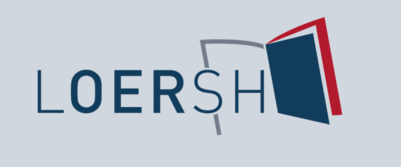 | Lorenz, Anja: H5P: Interaktive Lerninhalte ohne Programmierkenntnisse erstellen. Workshop im Rahmen der Landesfachtag Open Educational Resources (OER) Schwerpunkt Elektrotechnik, Flensburg, 2018. @workshop{Lorenz18loersh,
title = {H5P: Interaktive Lerninhalte ohne Programmierkenntnisse erstellen},
author = {Anja Lorenz},
url = {http://bit.ly/loersh-h5p
https://www.uni-flensburg.de/medienbildung/projekte/loersh/},
year = {2018},
date = {2018-03-16},
urldate = {2018-03-16},
booktitle = {Workshop im Rahmen der Landesfachtag Open Educational Resources (OER) Schwerpunkt Elektrotechnik},
address = {Flensburg},
school = {Europa-Universität Flensburg},
keywords = {eLearning, freelancing, h5p, learning content, loersh, OERde, open educational ressources (OER), reusability, school},
pubstate = {published},
tppubtype = {workshop}
}
|
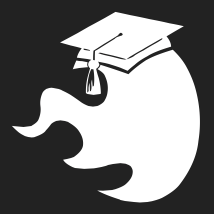 | Lorenz, Anja; Obermüller, Kai: Laser endgeil!. Session auf dem 10. Educamp #educampX, Neuharlingersiel, 2018. @workshop{lor2018educampx,
title = {Laser endgeil!},
author = {Anja Lorenz and Kai Obermüller},
url = {https://x.educamps.org/
http://bit.ly/educampx-laser},
year = {2018},
date = {2018-03-09},
urldate = {2018-03-09},
booktitle = {Session auf dem 10. Educamp #educampX},
address = {Neuharlingersiel},
howpublished = {Session auf dem 10. Educamp #educampX},
type = {BarCamp-Session},
keywords = {BarCamp, educamp, fablab, laser cutting, leisure, makerspace, making},
pubstate = {published},
tppubtype = {workshop}
}
|


























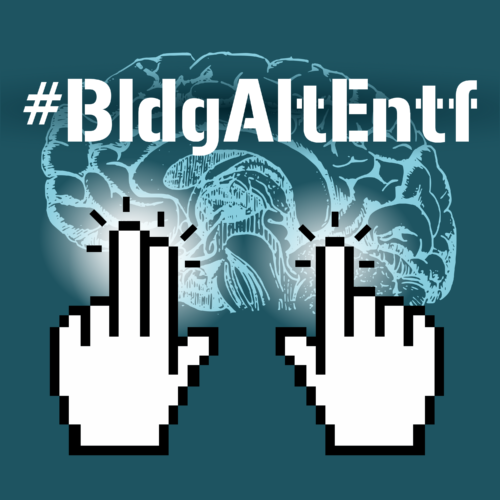

1 Pingback